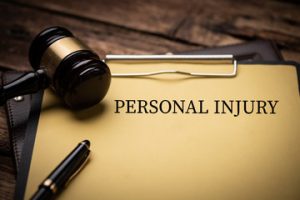Cabinet refacing involves replacing the cabinet doors and drawer fronts while keeping the original structure of your cabinets. This option is more expensive than refinishing but provides a dramatic, high-end look that will last for years to come. It opens up a range of customization options, like colors and finishes. A professional can help you choose a color that suits your style and is timeless enough to stand the test of time.

Cabinet Refinishing Sacramento is a cost-effective solution to updating the look of your kitchen without having to pay for a complete replacement. It is also often more affordable than refacing, as it preserves the original structure of your cabinets.
Hiring a professional team for cabinet refinishing is essential to achieving high-quality results. Professionals are equipped with specialized tools and techniques that can save you time and money in the long run by eliminating mistakes that can be costly to correct. Additionally, hiring professionals ensures the safety of yourself and your family during the refinishing process by handling chemicals and materials safely.
The first step of the refinishing process involves repairing any imperfections and sanding down rough areas to create a smooth surface. Next, a stain or paint is applied, followed by a protective sealant to enhance durability. Finally, new hardware is installed to finish the look. Refinishing is highly customizable, allowing you to choose any color or finish that suits your home.
Refinishing is ideal for cosmetic updates and functional kitchens, but it is not recommended for damaged cabinets or full-scale remodels. To achieve a more dramatic look, consider refacing your cabinets with a fresh veneer or installing new doors and drawer fronts. Refacing is more expensive than refinishing, but it provides a quick transformation and offers more customization options. It is recommended for homeowners who want a more modern aesthetic and are looking for long-term solutions.
Time-Saving
Your kitchen is the busiest corner of your home, where members of your family gather to cook delicious meals. It’s also the area of your house that sees a lot of wear and tear from daily use. Over time, this can cause cabinets to show signs of aging, such as scratches, dents, and faded colors. Cabinet refinishing is a fast and affordable way to refresh the look of your kitchen.
While it’s possible to refinish your cabinets yourself, this task is typically best left to professionals. Hiring a professional ensures that the job is completed quickly and correctly, saving you valuable time. A professional will thoroughly clean the cabinets, then sand them to remove rough areas and ensure that the new stain or paint adheres properly. They will then apply a coat of protective sealant to enhance durability and protect the finish against moisture, stains, and wear.
One of the biggest benefits of cabinet refinishing is that it saves you money and time over replacing your cabinets. Replacing cabinets requires tearing out existing units and installing new ones, which is a lengthy process. It can also cost significantly more than refinishing, not to mention the expense of removing and disposing of the old cabinets.
Cabinet refinishing keeps the original structure of your cabinets intact, which is especially beneficial if they are high-quality or custom-made. This method is also customizable, allowing you to choose the color or finish that best suits your home’s decor.
The amount of time it takes to refinish your cabinets varies depending on the scope of the project. However, the entire process usually only takes a few days to a couple of weeks. During this time, you’ll need to prepare your kitchen by clearing out and protecting countertops and appliances with coverings. It’s a quick and easy way to upgrade your kitchen without spending months on a major renovation.
When it comes to choosing between refinishing and refacing, the choice will ultimately come down to your budget and desired aesthetic. Refacing is a great option if you want to make a dramatic change to your cabinets, but it’s also more expensive and labor-intensive than refinishing.
Eco-Friendly
Cabinet refinishing is environmentally-friendly, as it extends the lifespan of existing structures rather than replacing them with new materials. Refinishing also minimizes waste generation and energy consumption, which are important considerations for Vancouver’s commitment to environmental sustainability.
Traditional cabinet refinishing involves stripping, sanding, and restaining the existing wood surfaces in your home. This process typically uses a variety of chemicals, including VOCs (volatile organic compounds), which release toxic fumes into the air that can lead to a number of health complications. In contrast, modern refinishing techniques utilize water-based products with low or no VOCs, improving indoor air quality and minimizing environmental impact.
Refinishing is a greener choice than completely replacing your cabinets, which require the creation of new boxes, doors, and frames using significant amounts of wood. Refacing requires less wood than traditional replacement, and you can opt for eco-friendly materials like thermofoil to give your kitchen a sleek, modern look. Thermofoil is made from recyclable PVC laminate that’s thermally adhered to a wooden substrate. This material is durable, easy to clean, and a great alternative to solid wood or veneer.
During the cabinet refinishing process, you can still use your kitchen or bathroom, allowing you to continue living your normal life with minimal disruption. Moreover, refinishing is usually completed within a few days, whereas complete cabinet replacement often takes months and can cause significant inconvenience to your daily routine.
Choose reclaimed wood for your refinishing project to add warmth and character while reducing the amount of resources used in manufacturing. You can even go a step further and install countertops made of recycled glass, concrete, or paper composite for a truly eco-friendly renovation.
When choosing a contractor for your cabinet refinishing project, be sure to check their credentials and ask for references. Refinishing is a skilled craft, and it’s crucial to hire a team with the experience and knowledge to ensure a beautiful, seamless finish. If you do opt for a full cabinet replacement, be sure to recycle the old cabinets at your local recycling center. This will help ensure your renovation is as eco-friendly as possible!
Minimal Dust and Mess
Cabinet Refinishing involves cleaning, sanding, and applying stain to your existing cabinets. This process is less intensive than refacing your cabinets and generates far less dust. It is a great option for homeowners who want to change the look of their kitchen without undergoing a complete remodel.
The first step in cabinet refinishing is to remove the doors and drawers, and label all the hardware and hinges. This will allow you to paint the cabinet doors and drawers without obstruction. Next, wipe down the surfaces to clean them and eliminate grease stains. Once the cabinets are clean, you can apply a deglosser to the surface. This is a time-saving alternative to sanding and will dull the finish so that primer can adhere effectively. Once the deglosser has dried, you can use a high-quality bonding primer. Products like Zinsser Bullseye 1-2-3 and Kilz Adhesion are good options.
Once the primer has dried, it’s time to apply your new color! The best paint to use for your cabinets is a glossy or semi-gloss. This type of finish is more durable than flat or eggshell paint and can withstand the abuse that your cabinets are subjected to on a daily basis.
Before applying the new finish, you should lightly sand the cabinets to remove any imperfections. Then, you can stain the wood to your liking. When the stain has dried, you can apply two coats of a compatible polyurethane or varnish. You should lightly sand between each coat.
Once the cabinets are dry, you can install them back in your kitchen. Don’t forget to replace the hardware. For a classic look, you can choose from brushed nickel, pewter or polished brass. If you prefer a more modern look, you can opt for a gloss white or black handle. Whatever you choose, it’s important to match the finish of your faucet and any other appliances. Then your kitchen will have a cohesive and updated look.
